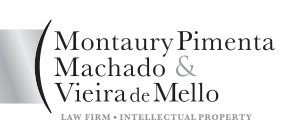Research shows that the country loses more than R$300 billion because of counterfeit products. They still pose a risk to consumers.
Last December 3rd, was the National Anti-Piracy Day. Product Counterfeiting is a worldwide phenomenon and, in Brazil, this practice harms several sectors of the economy. According to the Yearbook of the Brazilian Association to Combat Counterfeiting, Brazil lost R$345 billion in 2022 because of piracy.
The amount represents the loss of tax collection and what the original companies fail to earn. The amount is 17% higher than the previous year.
Piracy ends up discouraging investment in research and development of products and new technologies by industries and brings damage to the job market, as thousands of formal jobs are not created in the country each year.
“In the economic field, piracy is considered a serious problem. For public companies, the main losses refer to taxes that fail to be collected due to tax evasion. In the private sphere, the practice represents a large portion of lost sales for victimized companies, as the population starts seeking cheaper inauthentic brand products, directly affecting their revenue. The more counterfeits there are, the lower the sales of original products will be, indirectly affecting the reputation of victimized companies. This leads to an increase in various types of complaints in their service channels, which certainly has drastic effects on the consumer experience with the brand”, says David Fernando Rodrigues, lawyer specializing in Intellectual Property, Law and Technology at Montaury Pimenta, Machado & Vieira de Mello.
The figures related to these losses were calculated by the Federation of Industries of the State of São Paulo – FIESP, in the 2023 edition of its Transnational Illicit Markets Yearbook. According to the research, the piracy market generated around R$23.36 billion, in the State of São Paulo alone.
According to the yearbook of the Brazilian Association to Combat Counterfeiting, 20 sectors are the most affected and account for two thirds of the losses caused by piracy. The largest is fuel, with an estimated loss of R$29 billion. Next comes beverages: R$28 billion. Agricultural pesticides, clothing, perfumery, hygiene and cleaning, auto parts and pay TV are also on the list.
Check out the most affected sectors:
Food and drinks
Economic data in São Paulo show that this sector generates at least R$491.38 million per year, considering the high possibility of profit from the sale of lower-quality products, without regular origin and benefiting from the high transnationality of 80.86% existing in the sector.
Toys
The growth in the sale of pirated toys is mainly driven by the lack of information about the possible harm resulting from the consumption of counterfeit and pirated products, especially affecting low-income consumers.
Behind purchases made from street vendors, for example, there is an operation of sophisticated criminal networks that supply pirated or illegal products (robbery, theft and smuggling).
Economic data in São Paulo shows that this sector generates at least R$171.5 million/year, representing 2.72% of the sector's total market (licit and illicit production), with transnational supply of almost the entire sector.
Electronics
Just like the automotive sector, the illicit electronics market is structured, dynamic and diversified, based on violent means of acquiring products, through robberies and theft of cargo in storage or transit.
In addition to strong local illicit production, it is victimized by large transnational illicit production, through smuggling, embezzlement and counterfeiting. Economic data in São Paulo shows that this sector generates at least R$1.76 billion, representing 8.44% of the total market (licit and illicit), with a high transnationality rate of 76.24%.
Medicines
The Brazilian pharmaceutical industry is today one of the largest in the world, constantly introducing new effective drugs for the treatment and control of diseases, generating an increase in demand for affordable medicines from those who need them, generating the opportunity for counterfeiting, piracy and theft of pharmacies and loads of these products.
Economic data in São Paulo shows that this sector generates a minimum of R$413.7 million, with a transnationality rate of 95%.
Chemicals
The illegal trade in chemical products is primarily involves fuel adulteration with an operational scheme based on systemic tax evasion, the theft and robbery of loads of chemical inputs reintroduced into the legal market, the smuggling of products such as pesticides, occurring mainly in border regions due to significant differences in legislation and pricing.
Economic data in São Paulo shows that this sector generates at least R$4.3 billion/year, with a transnationality rate of 1.94%, resulting from robbery and cargo theft and, mainly, fuel adulteration.
Clothing
Criminal organizations operating in this market are increasingly sophisticated, outsourcing and segmenting production lines, with which they generate high profitability, arising from counterfeiting designer brands, acting as illegal factories. This vast and dynamic transnational market highlights China and Paraguay as the main external suppliers for illicit operators.
Economic data in São Paulo shows that this sector generates at least R$1.9 billion, representing 11.19% of the sector with a transnationality rate of around 99.63%. Furthermore, there is the uncalculated loss resulting from the devaluation of the copied brand.
For Thais de Matos M. Lio, specialist in Trademarks and Patents at the firm Montaury Pimenta, Machado & Vieira de Mello, piracy falls within a niche of illicit markets responsible for annual billion-dollar losses, which affect the State, citizens and, of course, the holders of Intellectual Property Rights as victims.
“It is extremely important for public and private entities to come together so that the fight against this problem yields significant results, interrupting the growing cycle of illegality promoted by these practices”, she warns.





